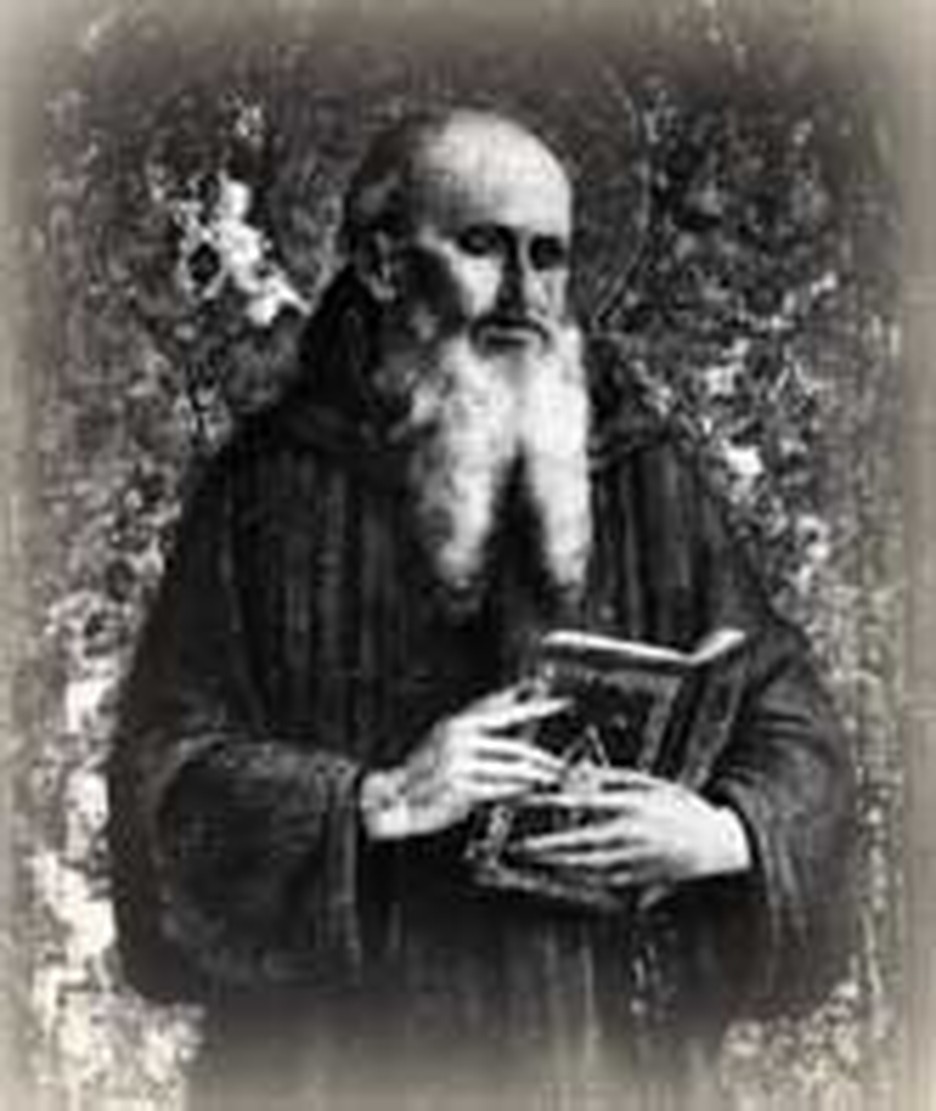
Next to St. Francis of Assisi, St. Bonaventure may have been the most eminent of the Franciscan friars (some might contend for Francis of Paolo). He was not only Governor General of his order, but the man who gave them their definitive doctrine and only the sixth person to be named a primary doctor of the church. At that time he was given the name "Doctor Seraphicus."
His theology teaches that God cannot be known rationally but must be apprehended mystically. To be pure of heart is a truer way to God than to have a razor-sharp mind. Love, he said (following St. Paul), supersedes knowledge. Bonaventure's teaching was strongly Christ-centered, even his biography of St. Francis, who taught men "to conform their lives to the life of Christ."
Bonaventure was no arid scholar as three examples will show. First, to learn the needs of the Franciscan order he went out and visited his friars, winning such love from them that there was much weeping at his death. Second, his theology is not dry but mystical. He did not load his work down with tedious digressions into subtle points but made every effort to teach plainly. Third, his biography of St. Francis is an example of good investigative reporting, for he interviewed many brothers still living who had known the great saint.
He was zealous for souls and preached much. An extensive collection of his sermons remains in existence. Bonaventure taught that man needs grace in order to stand straight. Only through Jesus Christ can he be put right with God. Christ as the word incarnate was an important theme in his preaching. The grace of the sacraments heals the soul of accumulated effects of sin, both deliberate and inherited.
One sermon he preached was on this day August 31, 1264, before Pope Urban IV and his council. This was on the "Blessed Sacrament." We are made complete by partaking of the Eucharist with appropriate contemplation. By contemplation he means a generous, prayerful and even mystical mindset that results in losing oneself in the adoration of God.
As his apology for varieties of religious orders, Bonaventure notes that no one order can capture the fullness of Christ although each tries to capture something of his perfection. Hence there are many ways of serving Christ and approaching his perfection. Vows are merely aids to living a life which imitates Christ.
Because of the warmth of his religious feeling, Bonaventure is highly regarded as a theologian, who managed to avoid the pitfalls of pagan philosophy. It is owing to him that Franciscan thought is largely Augustinian in orientation. Aristotle and Augustine (through intermediaries) were the two strongest influences on his thinking.
Bibliography:
- "Bonaventura." Dictionary of Scientific Biography. Editor Charles Coulston Gillispie. New York: Scribner's, 1970.
- Bonaventure. "Prayer after Communion." http://www.ewtn.com/library/PRAYER/BONAVENT.TXT)
- Bonaventure. The Privity of the Passion, in Richard Rolle's Minor Works. London: John M. Watkins, 1923.
- Cullen, Christopher M. Bonaventure. Oxford: Oxford University Press, 2006.
- Eerdman's Handbook to the History of Christianity. Edited by Tim Dowley. Berkhamsted, Herts, England: Lion Publishing, 1977.
- Fremantle, Anne, ed. The Age of Faith. Great Ages of Man. Time-Life Books, 1965.
- McKeon, Richard. Selections from Medieval Philosophers. New York: Scribners, 1930; p. 111 ff.
- Potter, Mary Knight. The Art of the Vatican: being a brief history of the palace, and an account of the principal art treasures within its walls. Boston, L.C. Page & Co., 1902. Source of the image.
- Runes, Dagobert D. A Treasury of Philosophy. New York: Philosophical Library, 1945.
- "St. Bonaventure." The Catholic Encyclopedia. New York: Robert Appleton, 1908.
- Various encyclopedia and internet articles, including the Americana, Britannica, and the New Schaff Herzog Encyclopedia of Religious Knowledge.
Last updated April, 2007.








